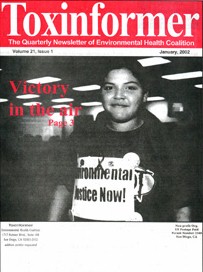
By Akilah Monifa
When John Ashcroft became attorney general,
many folks feared the negative impact he would have on civil rights and
liberties. Now those fears have become reality.
Eight days after the tragic events of Sept. 11, Ashcroft proposed
legislation to Congress in the form of a sweeping anti-terror bill. The
bill was put on the fast track and was passed into law and signed by
President Bush on Oct. 26 after skipping numerous committee processes.
The Senate passed the bill 98-1, with Sen. Russ Feingold, D-Wis., the lone
dissenter. The House vote was also overwhelming, albeit with more
dissenters. It passed 356-66.
Sen. Orrin Hatch, R-Utah, senior Republican on the Judiciary Committee,
stated: "I don’t know anybody in this country who’s afraid of
their law-enforcement people at this time. They’re afraid of
terrorism." Well, with all due respect, Sen. Hatch, perhaps you don’t
know the same folks I do. Many of us are afraid both of law enforcement
and of terrorists.
Before Sept. 11, racial profiling was focused on African and Latino
Americans and we were familiar with terms like DWB (driving while black or
brown) or SWB (shopping while black or brown). After Sept. 11, Arab
Americans, South Asians and Muslims are being subjected to racial
profiling. Terms like FWB (flying while brown) or FWA (flying while Arab)
are coming into prominence.
Ashcroft said that the objective of the act is to take suspected
terrorists off the streets. But the problem is that the act is in conflict
with the Constitution. Feingold, the American Civil Liberties Union (ACLU)
and others are rightly concerned about the impact this act will have in
the form of unconstitutional searches and punishment.
So exactly how will this act infringe upon our civil rights and liberties?
Here are a few ways, according to the ACLU:
1. Ashcroft will have the power to detain non-citizens based on mere
suspicion, and to deny readmission to the United States of non-citizens
(including lawful permanent residents) for engaging in speech previously
protected by the First Amendment.
Already, more than 1,000 suspects have been arrested in connection with
the Sept. 11 attacks, and the vast majority of them are still in custody.
Pursuant to the act, immigrants suspected of terrorist activities can be
detained for seven days without charges and, in some cases, held an
additional six months.
2. There will be minimal judicial supervision of telephone and Internet
surveillance by law-enforcement authorities in anti-terrorism
investigations and in routine criminal investigations unrelated to
terrorism. A possible consequence will be rampant eavesdropping on
telephone, cell phone, e-mail, Internet and computer conversations.
3. The government now has expanded powers to conduct secret searches both
in terrorism and non-terrorism cases. It can enter your home when you’re
not there, and not tell you about it until much later.
4. Ashcroft and the secretary of state will have the power to designate
domestic groups as terrorist organizations and block any non-citizen who
belongs to them from entering the country. Mere membership can be a
deportable offense.
5. The FBI can have access to all sorts of records — business, medical,
educational — without first getting a court order.
6. The definition of "domestic terrorism" is so broad that
people who engage in acts of political protest could be subjected to
wiretapping and enhanced penalties.
"We have fought too hard for our civil rights and civil liberties to
let them be taken away in the name of Osama bin Laden," said Rep.
Jesse Jackson Jr., D-Ill.
Jackson is right. We should not let our fears stand in the way of our
principles. We must stand up for our rights and liberties.
Akilah Monifa is a free-lance writer living in Oakland,
Calif. She can be reached at pmproj@progressive.org.
This commentary was
originally published on October 30, 2001.
